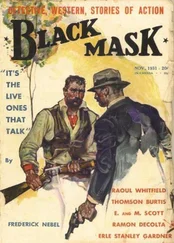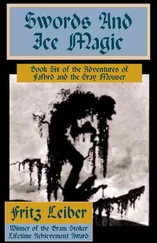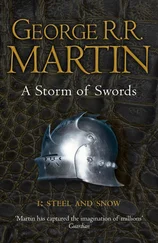But the spells went amiss. Grievously amiss. Not many knew it.
But old Cazimir did.
And took himself and his few students deeper into the alleyways and shadows of Wiscezan.
He was not what he had been, was Cazimir Eisal.
He had been a great teacher when the duchess was alive. He had had his academy and students who came even from Korianth and distant ports to study under his guidance. He had had a library and a fine house and apprentices to do the grinding of herbs and the jotting-down of his great thoughts, so that Cazimir the Wise had very little to do but teach the most advanced of his students, who taught the rest.
But on the waft of a night wind and a stray curtain and the aged duchess’s bare shoulder, fever had arrived…and not all Cazimir’s wizardry had cured it.
He had suspected then, had Cazimir, that there was another Agency at work.
He had seen that Agency when Jindus hired it…seen that Agency for a lean and hungry man standing always near the war-lord, and he had said to himself it was not Jindus they had to fear.
But the duchess had already died, and the power had come into the heart of the new authority in Wiscezan, and Cazimir had had a grave, cold feeling that nothing now would go well for the city, or for him. The times had turned, and new omens were in the ascendant.
Accordingly, Cazimir left his house and took up residence in the lower town. His well-born disciples and apprentices, having a place to go, went to their well-born relatives, or set up shop in other places, scattered about the coast.
He still taught. He protected the Talented, the few he could find.
But age was on him, and his fortunes declined.
Oh, Miphrynes—that being the name of the Agency behind the duke—was sure Cazimir was still out there, but Miphrynes knew the nature of white wizards, that taking them on could provoke unexpected backlashes of magic, and so long as Cazimir stuck to the lower town, and until Miphrynes could get a wedge inside his defenses—well, Miphrynes found it convenient to sit in the ducal palace, enjoying the luxury in the confidence that a black wizard’s citadel was no easier to crack.
And his was a great deal more comfortable.
Take students? Not Miphrynes. He held power. He didn’t share it.
He got power. He obtained it from the depths of hell.
And hell was what was seeping out of Jindus’s palace these days, quiet as yet, and very subtle, but it knew what it wanted. It had failed in Korianth. Now it had a new foothold.
Master had not been well the last week. Master had not made a charm in a month…which left the students to do the spellcraft, and to sell it in the form of bits of paper, easy to carry, that did useful things.
Healing was beyond them. But papers that could light a fire, or chill water, those they had.
And Willem Asusse was in a position. He was the senior of the three of them, but almost as useless as ten-year-old Jezzy, who could only bespell cats, and then only when the cat was in a receptive mood. It was Almore who could light fires and Almore who could freeze water or boil it. So it was Almore’s charms, except one bit of paper, which offered to attract a mouser at least to some loyalty, if fed.
And it was Willem’s job to sell them around and about the Alley, which was his Talent.
Well, more, his talent was illusion, like Master’s, and he did one very important job, helping Master keep the Alley secret and shut off from the rest of Wiscezan.
But he couldn’t so much as light a candle, not like Almore, so it was Almore who kept them fed in Master’s little lapses, and it was Willem’s art of illusion and flummery that convinced householders they were not scared to buy from him.
It had gotten him, thus far today, a loaf of stale bread, which he had broken in half and tucked under his jerkin. It was no small trophy, good, dark bread that had a lot of substance, even if it was burned half-black and full of hollow bubbles—young goodwife Melenne was not the best cook, but she was scatter-witted and a good customer for the fire-starting spells.
And the tavern was a safe bet. The freezing-charm improved its beer to drinkability.
It was an old contact. A safe one. They took a risk taking on any new customer these days: they daren’t advertise. But the tavern relied on them, and the tavern had a back side well planted in Wink Alley.
It was a mazy sort of confusing place to begin with, the Alley: if you didn’t know to take the slit of a passage at Blind Gaijer the Smith’s house, and then to take the next branch to the left, you were going to wander a bit, and you could end up right over in the netherside of Beggars’ Row, where the beggars didn’t like you to be.
So even without a little illusion, the Alley was a maze, and dangerous. It had a few inhabitants, merchants semi-associated with the wizard, who were its outward face, a potter, and a couple of enterprising pickpockets that never worked inside the Alley. And with the illusions—you didn’t see the other doors. You just thought the Merry Ox was the way out, and it was, and that was that. You never saw the other back doors, just that one…no matter where you wandered in Wink Alley.
But illusions were beginning to weaken—Master’s, and his; and though he’d used to go outside the Alley now and again to peddle his wares, he stuck close these days.
Possibly Master’s intent was weakening. Possibly Master could grow more forgetful, and a stray apprentice could end up on the streetside—forever, or at least until Master missed him. Master’s hovel, unlike the commercial establishments, had no streetside door.
At any event, Willem was anxious to be home, and there was no trouble, despite the other confusion in the Alley, in his finding the Merry Ox. Getting the best deal from the innkeep—it was well not to sell him too many spells at a time, lest he get the notion they were easy-made. And it was a good hour for bargaining, the lull in the afternoon, between noon and the siesta hour.
So, turning around three times, and blinking twice, which was guaranteed to find the Merry Ox, Willem skipped up the back steps, went down the unlighted little hall to the dim bar where Wiggy Brewer ran his business. The place smelled of pork pie, of spilled beer, mildew—and Wiggy, whose contribution was sweat and garlic. There was no spell to mask Wiggy, who sold baths but never took one.
It wasn’t Willem’s favorite stop. Goodwife Melenne was that. But he could deal with Wiggy’s daughter, who generally knew what the price ought to be, and was going to be, so it was usually short, sensible dealing and straightforward, Wiggy’s daughter having no designs on him at all—there was a use for illusion in his trade.
But Wiggy’s daughter—her name was Hersey—came flying toward him. “Willem!” said she. “Willem!” grabbing the front of his jerkin, leaning across the bar with a huge expanse of bosom flowing into his view. “There’s trouble here. There’s the duke’s men on the prowl. Go! We c’n talk in th’ alley!”
Willem needed no second hint. He broke free and headed right back down the dark back hallway, with Wiggy’s ample daughter right behind him.
The Alley was safe, untenanted except by old jars and trash bins. Willem caught his breath there in the uncertain pale light, on the gritty back step of the Merry Ox, and, drawing a breath, swung around to ask Wiggy’s daughter what she had seen—
—When a large man in leather armor and a steel helmet came out of that dark hall, knocking Hersey right off the step and into Willem’s arms. Willem staggered backward, steadied the girl on her step, and, still holding on to her, heard a thunderous charge toward the door, from out of that dim hall.
Black-caps. The duke’s men, with swords drawn, and meaning business…but not aimed at them. Willem cast a fast one: I’m not here, she’s not here. And then because he didn’t want trouble in the Alley, he threw another one after it: Nobody’s here.
Читать дальше











